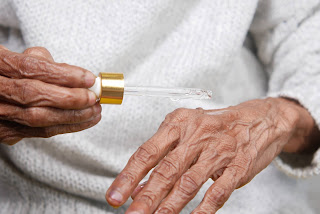What to do if you having diarrhea?
What is diarrhea?
Constantly having loose, watery bowel motions is known as diarrhea. Stool typically contains 60–90% water. Insufficient water removal from the stool, which results in it becoming loose and badly formed, is the cause of diarrhea.
Irritable bowel syndrome (IBS), temporary viral and bacterial infections like food poisoning, and more severe conditions like inflammatory bowel disease (IBD) and gastrointestinal bleeding can all contribute to these frequent bowel movements.
Diarrhea can be acute or chronic, lasting up to four weeks, and can be an indication of a more serious condition. Acute cases can last up to two weeks. It's critical to pay attention to the duration, appearance, and presence of additional signs of your diarrhea.
Other Diarrhea Signs
Diarrhea can come with additional symptoms in addition to frequently occurring loose, watery bowel motions. It's typical to encounter one or more of the following, depending on the cause:
- sickness and nauseous
- a diminished hunger
- Continent discomfort
- Cramping
- Bloating\sDehydration
- A strong desire to use the washroom frequently and a lot of stools
What are the types of diarrhea?
Acute diarrhea
diarrhea that lasts less than two weeks is referred to as acute diarrhea. Most instances of acute, watery diarrhea (like the common traveler's diarrhea) are brought on by viruses or bacteria. In two to three days, most instances of acute diarrhea will resolve on their own.
Chronic Diarrhea
Having diarrhea for more than four weeks is considered to be chronic (also known as persistent diarrhea). Your doctor should be notified if you experience this kind of diarrhea because it could be an indication of a more severe condition.
Causes for acute diarrhea
- Infections
- Viral
- Bacterial
- Parasitic
- Food intolerances
- Food poisoning
Causes for chronic diarrhea
- Inflammatory bowel disease (IBD)
- Radiation therapy
- Infection
- Gluten insensitivity
- Lactose intolerance
- immunodeficiency
How to treat diarrhea?
Diarrhea never occurs at a convenient moment. In reality, it frequently occurs during a highly anticipated vacation or event, which is when it hurts the most. The positive news is that most acute diarrhea cases get better on their own in 1-2 weeks. Some treatments that could be beneficial include:
- Frequently sip on water or other liquids that contain electrolytes.
- To help slow down gut motility, take an over-the-counter diarrhea medication (such as loperamide).
- Try taking a probiotic pill, preferably one with lactobacillus.
- Change your diet temporarily to include more bland, low-fiber meals and less fried, greasy, and high-fiber food.
- Bananas, applesauce, and cooked vegetables can all help to lessen diarrhea.
For more serious cases, you may need to talk to a doctor. Your doctor will perform an examination to decide what tests or treatments are needed to help get rid of your diarrhea and determine if it could be the result of an underlying condition
How to avoid diarrhea ?
- Throughout the day, frequently wash your hands with detergent and water.
- All surfaces that come into touch with raw foods should be thoroughly disinfected.
- Make sure all of the food you consume is hot and cooked all the way through.
- Keep raw or undercooked meat and shellfish to a minimum.
- When visiting certain nations, in addition to the advice above, you should take the following actions:
- Unless you can be certain the water is coming from a reliable source, only drink bottled water, even when cleaning your teeth. Verify that the water bottles' seals are still in place.
- Do not consume ice produced from tap water.
- Eat only fruits and veggies that can be peeled or that have been cooked.
- Acquire the necessary immunizations before traveling, if necessary for that area.







Comments
Post a Comment